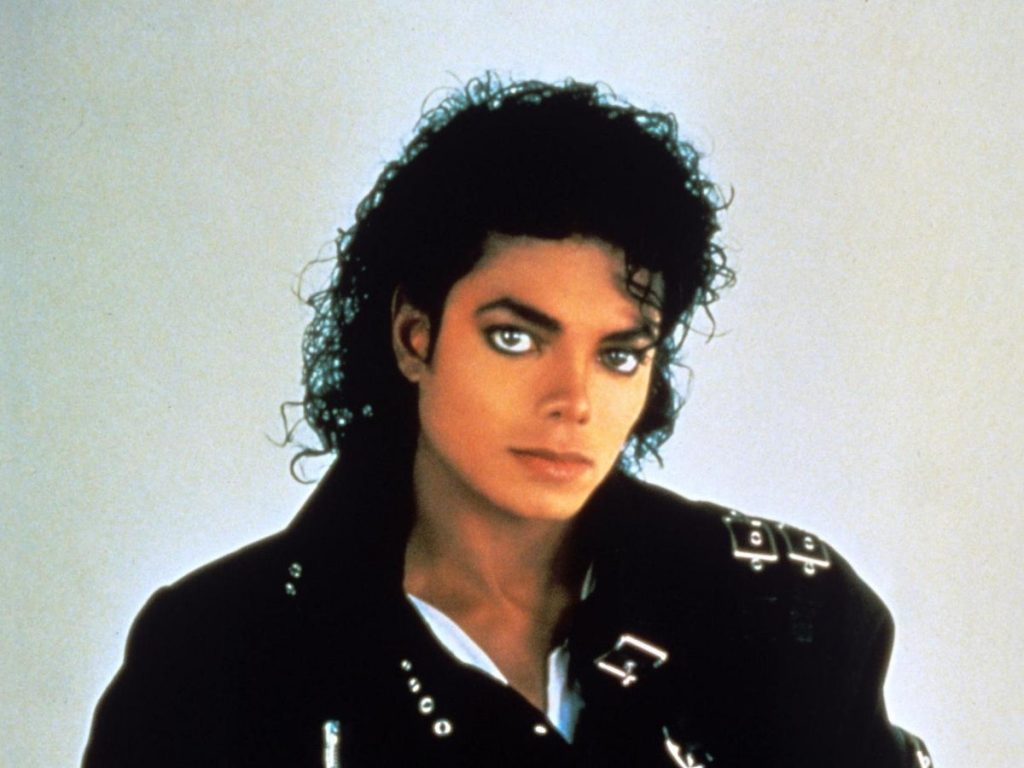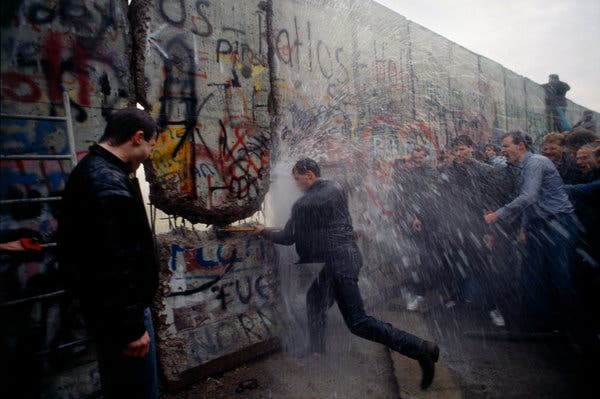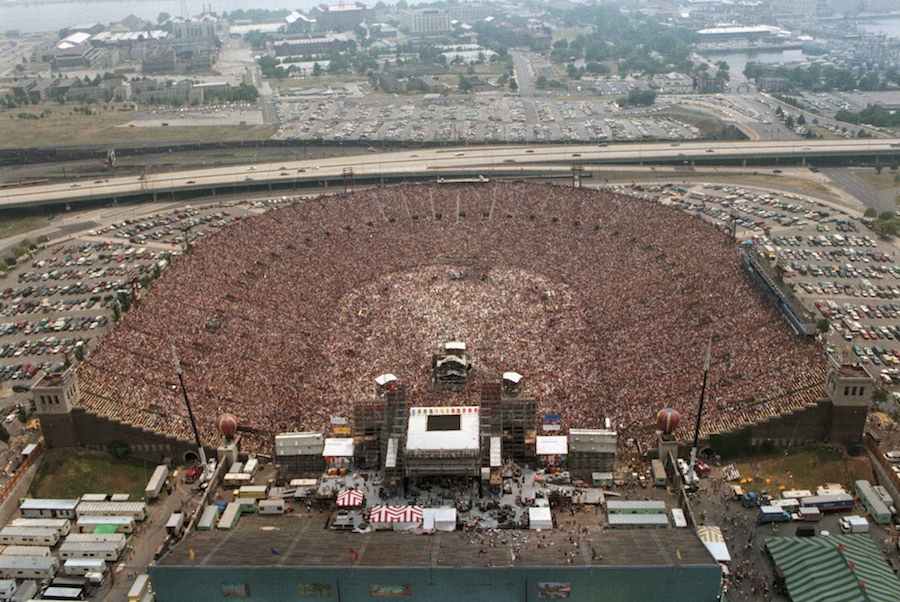Michael Jackson
Michael Jackson, often referred to as the ‘King Of Pop’, is undoubtedly one of the most significant figures of the 80s and modern music in general. The singer, songwriter and dancer is still listened to today and was the most awarded artist in pop music. He began his very successful solo career at after being with The Jackson 5 for seven years of his early life and released ten studio albums before his death in 2009. The album that got him mainstream was ‘Off The Wall’ in 1979. This album captured the essence of dance music at the time, selling over 20 million copies and reaching number 3 in the US Billboards. It contains the popular song ‘Don’t Stop ‘Til You Get Enough’. Stevie Wonder and Paul McCartney helped write the album. Even though it was his breakthrough album, Jackson wasn’t happy with it and said: “It was totally unfair that it didn’t get record of the year and it can never happen again”.

Rock With You was produced by Quincy Jones and comes from the same 1979 album and was the second single from the album. Even though it was released in the 70s, it still reigned a popular album throughout the 80s. It got to the top spot on both the US pop and R&B charts. It is said to be possibly the last song of the disco era following the end of disco in the late 70s. The tempo is 114, which can be described as moderately fast and fairly cheerful which is conventional for a disco song. It is also in 4/4 which makes it easy to dance to because it keeps it lively and energetic, and the beat is easy to follow. The song has strings, guitar, bass, lead vocals, brass, stacked harmonised vocals, drums, percussion, synth and a Fender Rhodes. It has around 44 tracks in total which a lot of consists of vocal harmonies, strings and brass instruments. This makes the songs texture very thick and there is always something happening in the song. Its structure is intro, verse, pre-verse, chorus, verse, pre-verse, chorus, bridge, break, then a shout chorus which eventually fades into nothing. Overall, the song is very energetic, which makes it a perfect example of popular dance music at the time.
Politics
Many things regarding politics happened in the world regarding politics in the 80s. The fall of the Berlin Wall happened in late 1989. This was a huge moment for both Germany and around the world as Berlin had been split by this wall since 1961. This moment and the weeks after declared the end of the cold war. Iggy Pop talks about the wall in “the passenger” in 1977. He was in Berlin, seeing the wall whilst he was on the Berlin S-Bahn train when on a world tour.

As well as this, Bloody Sunday was a major event in Northern Ireland in 1972, in which 26 civilians were shot, 14 of which were killed at the hands of British soldiers during a protest against internment without trial. An investigation was launched into the massacre however it claimed the soldiers were shooting at armed people, so the investigation was dropped. Until 1998, when a final investigation proved the shooting to be unjust. Irish band U2 wrote a song called ‘Sunday Bloody Sunday’ in 1983, the lyrics being about what happened on the day and how horrible it was to see in the news. Some of the lyrics like “Broken bottles under children’s feet, Bodies strewn across the dead end street” shows exactly how horrifying the scenes were and that innocent people were killed.
Also in the 80s, Margaret Thatcher was prime minister in the UK. Winning the election in 1979, the country was divided on ‘The Iron Lady’s’ views and policies, this split being mostly between the North and South of England. Wanting to reduce the trade unions, she tried to close many coal mines in England, most of which were in the North. The miner’s strike in 1984 was retaliation to this policy as many mine workers were working-class and if they lost their job, they would really struggle. Many people wrote negative music about her during the 80s, for example, ‘Ding Dong! The Witch Is Dead’ by Klaus Nomi, and Elvis Costello’s ‘Tramp the Dirt Down’.
Music
Lots of music released in the 80s is still some of the same music we still listen to today. A prime example of this is the fact that Grand Theft Auto V, released in 2013, showcases many songs from the 80s on its in-game radio called Non-Stop Pop FM. Artists like Bronski Beat, Pet Shop Boys and Wham! feature on this radio, proving that music from the 80s is still widely influential and still listened to by many generations today. As well as pop, other genres like glam metal, hip-hop, and many different sub-genres of rock reigned superior in the 80s. The use of new musical technology clearly inspired music in the 80s, as without synthesisers, new ways of recording and drum machines (like the Roland TR-808, released in the early 80s), pop and hip-hop wouldn’t have been anything like it was then.
As well as new musical technology, another huge trend came about in the percussive element of songs; gated drums. This video explains the technology behind gated reverb and its popularity very well:
In conclusion, gated reverb was a complete accident that managed to change music for over a whole decade. Phil Collins’ drums were picked up by a compressed microphone in the room, in which it gave the drums a never heard before, punchy reverb, which disappeared quickly after thanks to a gate that was on the hardware they were using. It’s thick and unique sound can be heard in so many songs in the 80s, and it is making a comeback in the 21st century. For example; the drum fill in Phil In Collins’ The Air Tonight, Let’s Dance by David Bowie and even the 2011 song Midnight City by M83. Prince was especially a fan of non-linear reverb, which could only be produced by technology. Instead of the volume going down after a drum is hit, it goes up, therefore creating a sharp ending to the noises.
Events In Music
A huge event that changed music as we know it was the introduction of MTV (Music Television). Although it was not massively popular first because not everybody had cable TV’s to watch it, it would become a staple for music fans and TV watchers alike in the years to come as it combined the two well. It made its debut in 1981, the first song played on it being Video Killed The Radio Star by The Buggles (quite ironic!) MTV was not a win at first as making music videos was not a normal thing for artists, and only extremely famous musicians with a large budget would be able to make them. However, the invention of MTV soon spurred labels and artists to start making music videos so they could get more airplay.
Live Aid was held in 1985 in both Wembley Stadium in London and the JFK Stadium in Philadelphia. It was a charity event in the form of a live music concert, which managed to raise over £94 million for the Famine Relief charity in Africa. Originally proposed by Bob Geldof, many famous artists like Queen, David Bowie, Madonna, Elton John, Sting, Duran Duran, U2, The Who, The Beach Boys, Eric Clapton and so many more played at the concerts, dubbed the ‘super concert’ because of the number of famous artists playing and the amount they raised for charity. Before this, Geldof organised Band Aid, a supergroup that wrote the song ‘Do They Know It’s Christmas?’ in 1984, raising £8 million in just a year for the same charity. The song sheds light on the famine in Ethiopia at the time, which was being reported on news channels causing a public outcry of people giving to charities like Save The Children to help Ethiopia.
